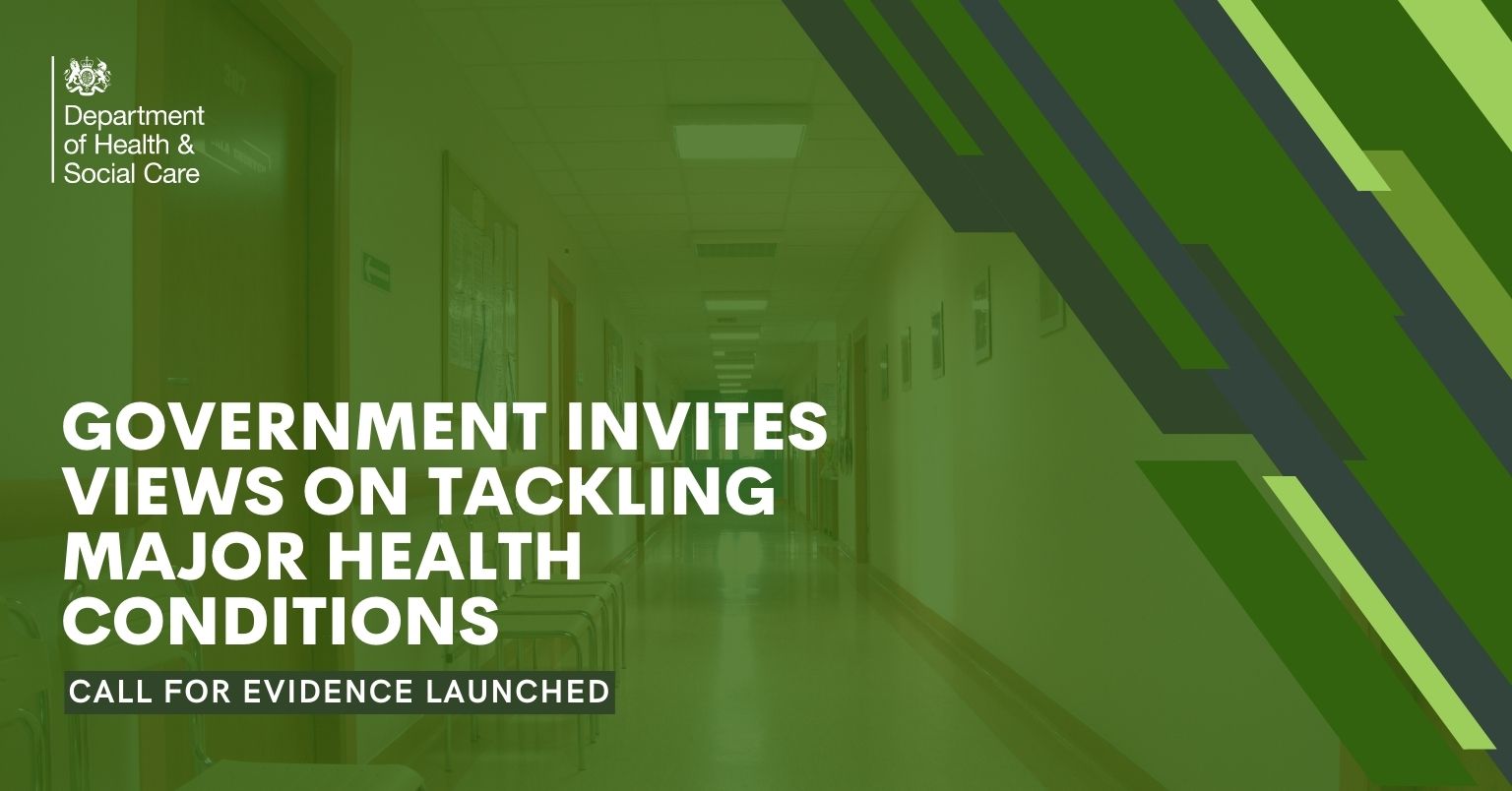
The government has launched a call for evidence to inform its landmark Major Conditions Strategy to tackle the main causes of ill-health, ensure care is patient-focused and relieve stress on the health and care system.
This call for evidence seeks views on how best to prevent, diagnose treat and manage six major groups of conditions that contribute to disease in England, specifically:
- Cancers
- Cardiovascular diseases, including stroke and diabetes
- Chronic respiratory diseases
- Dementia
- Mental ill health
- Musculoskeletal disorders
What is the purpose of the call for evidence?
- To give the public, charities, patient groups and other stakeholders an opportunity to inform the Major Conditions Strategy, helping to build consensus on what actions need to be prioritised.
- To identify local projects which are helping to prevent, diagnose and treat these major conditions which could be rolled out nationally.
- To take a long term view on how we can improve the health service for conditions putting most strain on the NHS.
- To look at how we use technology and whether it can be used to treat multiple conditions.
Who can respond to the call for evidence?
- The call for evidence is open to everyone, including patients, health and social care workers and other stakeholders.
- We are particularly interested in hearing from people who are living with one or more of these major conditions, as well as suggestions on how to improve care for such people.
How will the mental health and cancer call for evidence inform this new strategy?
- Last year we launched calls for evidence on cancer and mental health, and we have published those responses alongside this new strategy.
- The previous responses will be fully considered and will directly inform the development of the Major Conditions Strategy.
- People who responded will have the opportunity to provide further comments and suggestions, building on the evidence submitted last year.
What happened to the Health Disparities White Paper?
- We will no longer be publishing the Health Disparities White Paper, given the Major Conditions Strategy will cover many of the same areas.
- The Major Conditions Strategy will set out a comprehensive approach to addressing ill-health and early mortality in England, tackling health disparities and narrowing the gap between areas where healthy life expectancy is lowest and highest.
- By adopting this approach, we will also have the chance to look at how we use technology and whether it can be used to treat multiple conditions.
Is there a separate strategy to address dementia?
- The Major Conditions Strategy will focus on how we can tackle dementia, alongside the five other major groups of conditions that drive ill-health and early death.
- All previous dementia research will be used to inform this plan, and we remain committed to accelerating diagnosis and development of the latest treatments and technology.
Why have you decided to combine several strategies into one?
- One in four people in England now live with two or more major conditions and suffer from an increasingly complex set of needs.
- By bringing six major conditions together in one strategy, we will be able to focus on delivering better, joined-up and holistic care to address the needs of patients as a whole, rather than focusing on one illness at a time.
Is this the only chance to influence the strategy?
- We welcome ongoing engagement from stakeholders and the public as we develop the strategy. A panel of external experts from across the health and social care sector, as well as charities representing patients suffering from major conditions, will be providing advice and feedback throughout the year.
How long will the call for evidence last?
- The call for evidence will be open for six weeks and closes on 27 June 2023 at 23:59.
Recent Comments